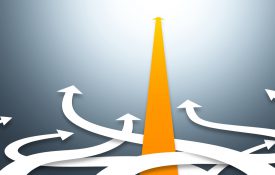-
How Everyday Ergonomics Shape Your Behavior
Fast Company: One of Darwin’s greatest insights came at the end of his 1872 work, The Expression of the Emotions in Man and Animals. “The free expression by outward signs of an emotion intensifies it,”
-
Moral in the Morning, But Dishonest in the Afternoon
Our ability to exhibit self-control to avoid cheating or lying is significantly reduced over the course of a day, making us more likely to be dishonest in the afternoon than in the morning, according to
-

Uncovering the Intricacies of Unethical Behavior
Various factors — including values and beliefs about what is correct, patterns of social orientation, and cost-benefit expectations — interact to produce unethical behavior.
-
Superstar Sports Players More Likely to Cheat
TIME: The first player to be affected by Major League Baseball’s crack-down on those caught using banned performance-enhancing drugs was Milwaukee Brewers’ outfielder Ryan Braun, who was suspended for the rest of the season. One
-
2013 Psi Chi Distinguished Speaker: Charles R. Honts
Lying is a most ubiquitous human behavior. We lie in 25 percent of our interactions, and even trained lie catchers perform near chance. While many of our lies are inconsequential, some have resulted in the
-
Expansive Postures May Lead Us to Dishonesty
Scientific American: Expansive body postures, like stretching one’s legs, confer a sense of power. And studies show that the feeling of power can lead to dishonest behavior. Now researchers find that just sitting at a

